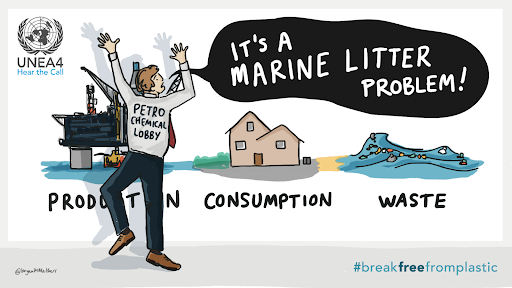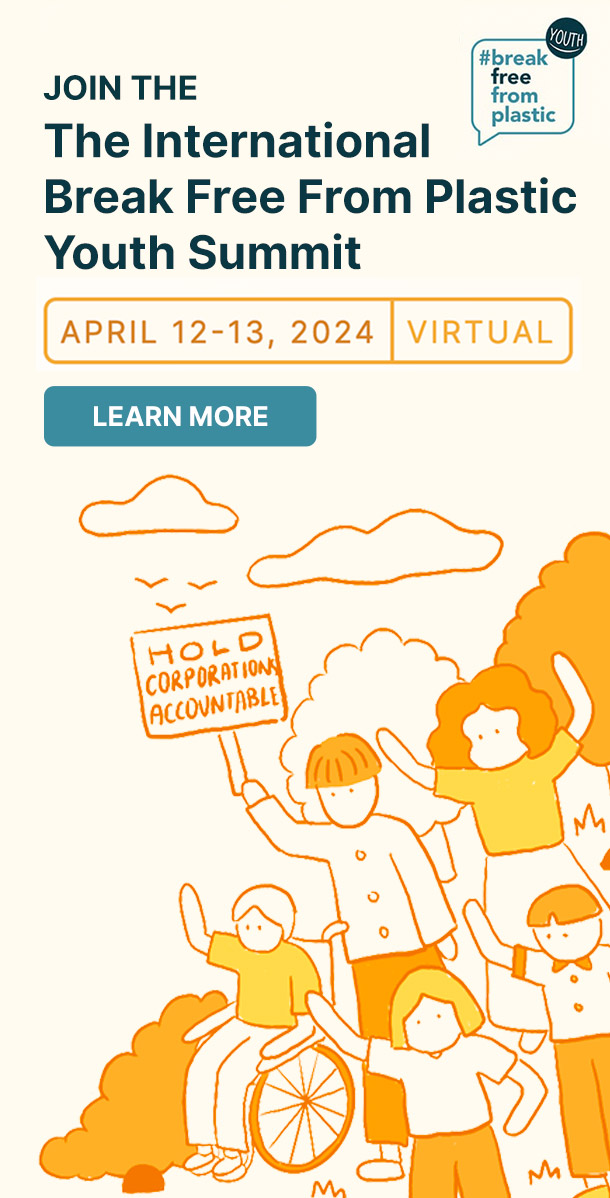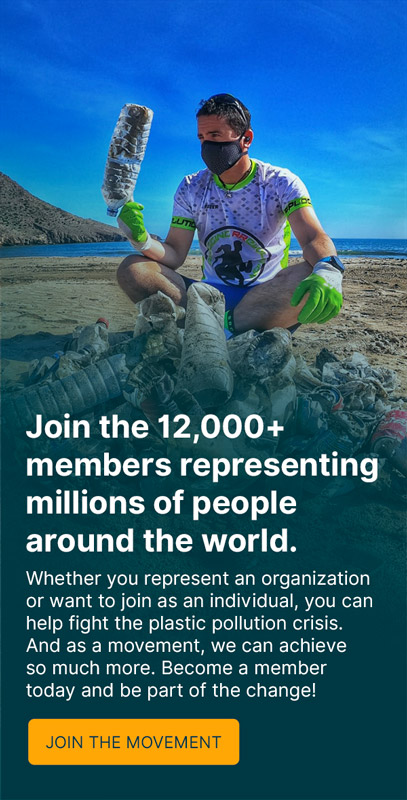“What’s all this about corporate accountability, anyway?”
Plastic pollution is a crisis: it visibly pollutes our waterways, streets, and homes, harming wildlife and human health. Microplastics and toxins from production are often in the air we breathe and the water we drink. And yet the global plastic production and packaging industries are planning to expand production of new plastic by nearly 40% in the next five years. The corporations responsible for plastic pollution are not nameless—in fact, they have some of the most recognizable brands in the world.
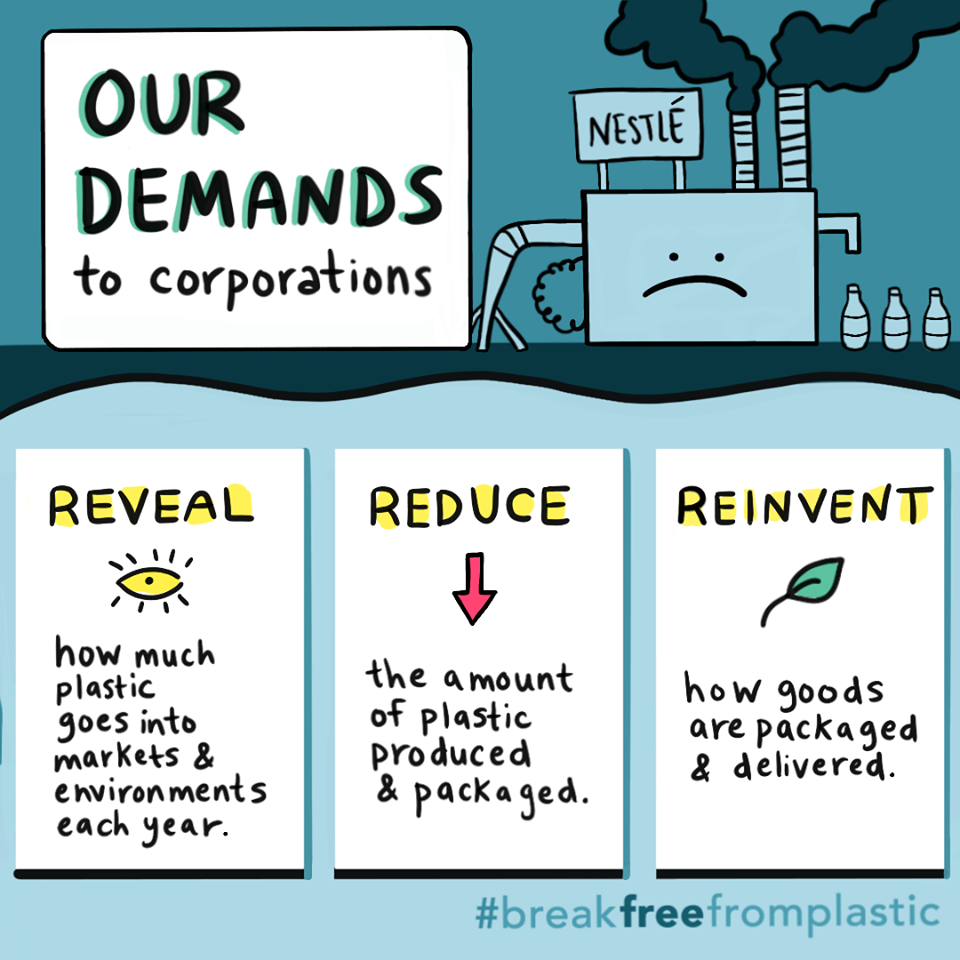 Local people are coming up with solutions to get food and care products without packaging, and to move their neighborhoods toward zero waste. But across the world, communities are reporting that more and more unmanageable and unrecyclable plastic is being sold at local shops. Flexible pouches and sachets are now everywhere, replacing materials that used to be easily refilled or even just recycled.
Local people are coming up with solutions to get food and care products without packaging, and to move their neighborhoods toward zero waste. But across the world, communities are reporting that more and more unmanageable and unrecyclable plastic is being sold at local shops. Flexible pouches and sachets are now everywhere, replacing materials that used to be easily refilled or even just recycled.
Much of this plastic ends up in our homes and the environment with a clear brand stamped on it, as corporations have assumed for a long time that it was safe to produce plastic, put their names all over it, and force it into our homes and shops. Members of the Break Free From Plastic movement from the Global South and Global North have come together to expose these brands for their reckless packaging habits. On World Cleanup Day in 2018, thousands of volunteers in hundreds of cities reported the brands found in their local parks, streets, and shorelines. (Learn more about what they found here.) Earlier this year, these same groups revealed the plastic monster these brands have created but can’t run away from.
Companies like Nestle and Unilever are starting to respond. They see that their packaging practices are quickly becoming outdated and unpopular. But the short-sighted options they’re putting forward are not yet real solutions for reinventing the way they deliver food and other goods. People around the world are still fighting to protect their health and their local environments from the scourge of plastic pollution.
This is where you come in
Doing a brand audit is a simple way to hang out with your friends and do your bit for the planet. Have you ever picked up a piece of trash off the ground and noticed the brand on its label before putting it in the bin? The brand audit is just that, but with a few neighbors and a bit of a plan.
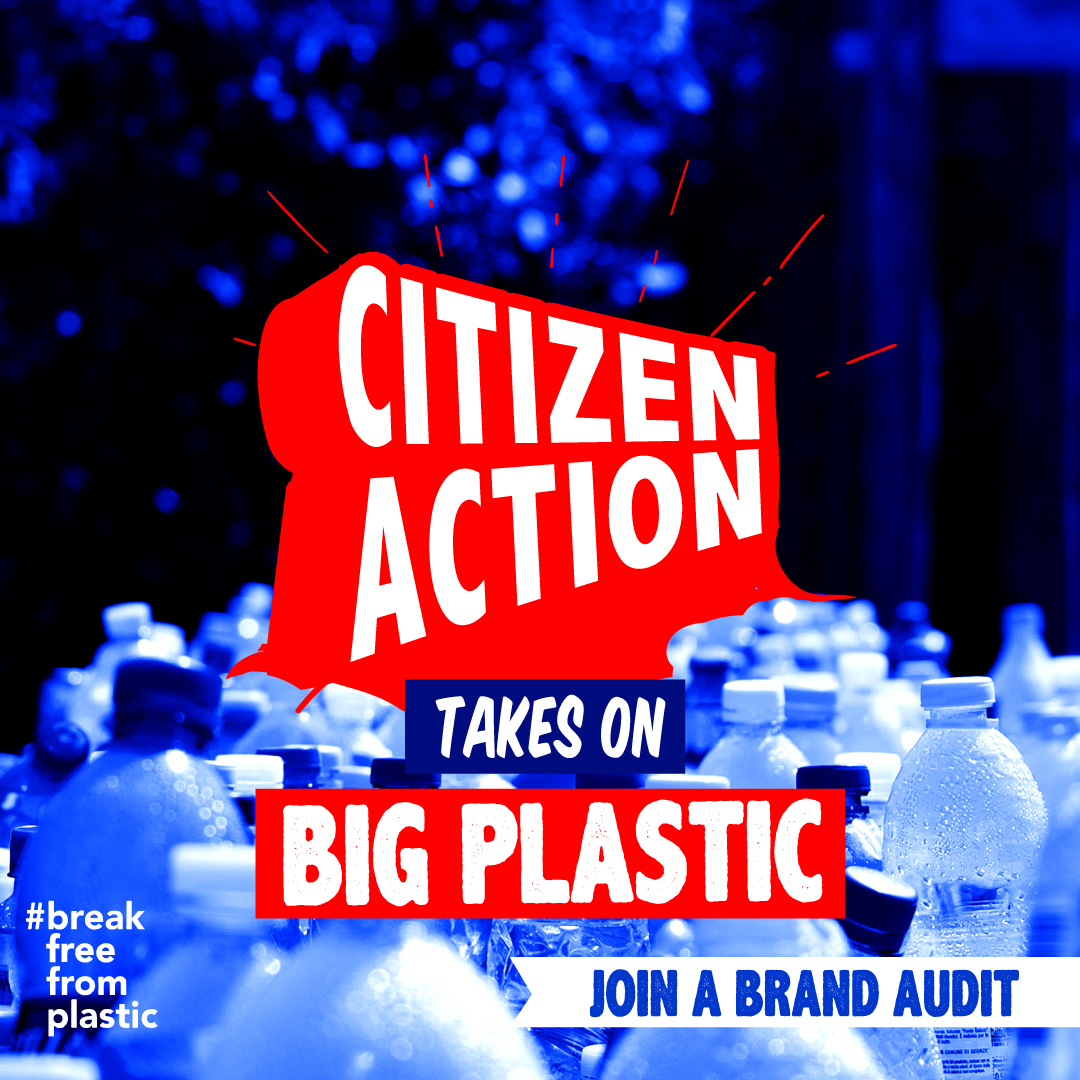 Everything you need to know about how to plan and do a brand audit can be found in the brand audit toolkit. In the weeks leading up to World Cleanup Day on September 21, we invite you to explore these ideas for where you can collect waste and audit it:
Everything you need to know about how to plan and do a brand audit can be found in the brand audit toolkit. In the weeks leading up to World Cleanup Day on September 21, we invite you to explore these ideas for where you can collect waste and audit it:
- The streets around your neighborhood
- A local park
- A nearby beach, river shore, or stream
- Your own home, school, or office
That’s right—you can do a brand audit right from home! So if you’re not able to get your gloves on and pick up outside, you can still show corporations that you expect them to be doing more to stop plastic pollution.
Isn’t September 21st during the global climate strike?
Plastic pollution and climate are inextricably linked. With the planned increase in new production, by 2050 plastics could take up more than 10% of the remaining carbon budget. That’s an enormous climate impact from a single product.
The climate strike is about holding corporations and governments accountable to their obligation to lead on real solutions to climate change. The brand audit project has similar goals, targeting some of the same industries. So we’re inviting people who are striking for the climate anywhere in the world to add a plastic pollution brand audit to their activities. Leading a brand audit is a great way to simultaneously clean up your local environment, make a statement about climate change, and show corporations that you expect better from them.
Join us and thousands of people from dozens of countries by adding a brand audit to your cleanup or climate activities this September.
Jane Patton has been a campaigner, advocate, and interim coordinator in the Break Free From Plastic movement. She is soon to join the Center for International Environmental Law to continue her work on the future for global policy on plastics.

